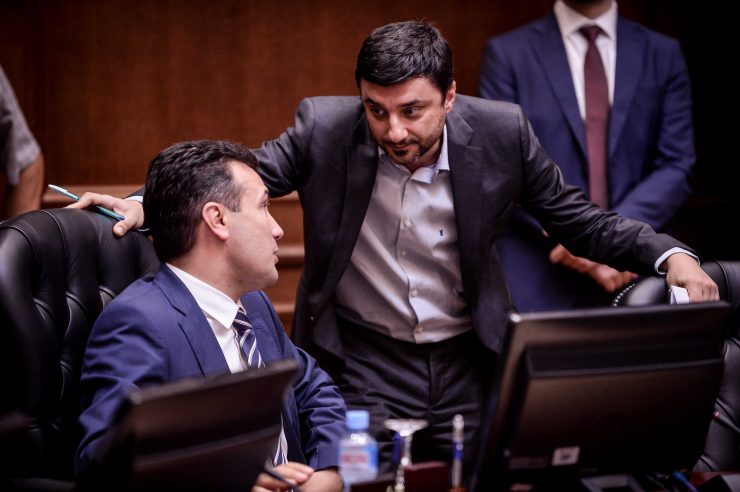Last November, when Greta Thunberg revealed that someone is impersonating her and is calling foreign leaders, actors and artists, the Zaev office was quick to respond that they were the victims of a “hybrid attack”.
Zaev’s PR adviser Marjan Zabrcanec sought to intercept the damage of the realization that they were duped once again into talking to Russian pranksters Vovan and Lexus, after the original series of conversations during which Zaev revealed sensitive national security issues linked with the expected partition of Kosovo and offered to bribe the Ecumenical Patriarch Bartholomew while talking to the pranksters pretending to be Ukrainian President Petro Poroshenko. The pranksters said that they grew tired of Zaev after he continued to text “Poroshenko” and at one point even revealed that he met with a PR hack who was involved in the toppling of the Austrian Government.
We uncoverd a hybrid attack during which the identity of young climate activist Greta Thunberg was abused, Zabrcanec said in November, insisting that Zaev saw through the call and didn’t fall for the Russian prank a second time.
Zabrcanec claimed that the call came from a different source, not Vovan and Lexus, which was today revealed as false, after it became clear that Zaev was duped by the same group for a second time. He is somewhat more reserved during the conversation than when he was talking to the “fake Poroshenko”, but at no point does he make it clear that he knows he is being duped, and discusses recreational marijuana use and closing the Ohrid airport with “Greta”.
Zabrcanec tried to use the original “Poroshenko” pranks to impose a pervasive system of fact-checking and media regulations on the press. He and the Zaev cabinet wanted to take advantage of the gaffes Zaev made to insists that such situations can be stopped in the future not by having more experienced leaders and staff, but by regulating the media. Their proposals, unveiled after the prank, included limiting access to press conferences and were loudly rejected by the press. The Government did try to use an incomplete list of “professional” media outlets, prepared by several associations of journalists, as a tool to lock out critical outlets from attending press conferences and even from reporting on the coronavirus epidemic, but this was also met with resistance.




Comments are closed for this post.